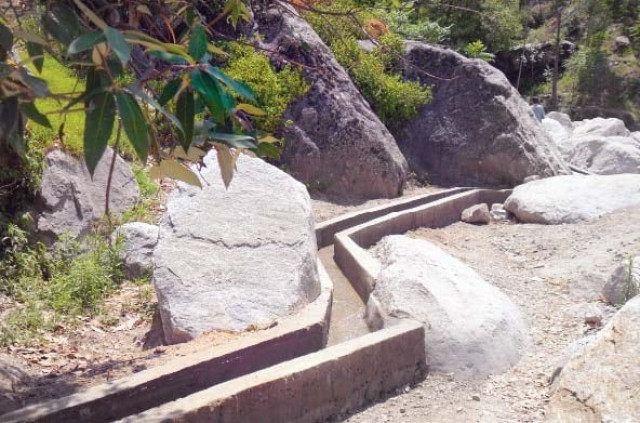Sindh govt seeks WB’s approval to restore Akram Canal
Canal's designed capacity was 4,500 cusecs, which reduced to 3,714 cusecs after its construction, says SIDA official

PHOTO: FILE
A six-member delegation of WB met the officials of SIDA at a hotel in Hyderabad on Sunday, to discuss the progress of the completed projects as well as the new plans.
The delegation was later taken for a visit to the canals in Tando Muhammad Khan, Sanghar and Hyderabad. Senior Water Economist Toru Konishi, Global Water specialist Gred Bowder, Practice Manager Michael Haney, Senior Water Resources Management specialist Lucy Lytton, Lead Water Resources Management specialist Francios Onimus and Water Resources specialist Basharat Ahmed Saeed were part of the delegation. SIDA saved $10 million from the WB-funded Water Sector Improvement Project (WSIP) extension, which started in March 2015. The authority will utilise the saved amount for the feasibility studies, subject to the bank's approval.
Thousands of acres of forest land under encroachment, govt admits
Left Bank Canal Area Water Board Director Mir Ghulam Ali Talpur, who briefed the WB officials at Akram Canal, said that the canal's designed capacity was 4,500 cusecs. However, its capacity suddenly reduced to 3,714 cusecs immediately after its construction. "With the passage of time, the canal's concrete slabs fell on its bed further reducing the discharge capacity," he said.
The 116-kilometer long canal irrigates the agricultural lands in Hyderabad, Tando Muhammad Khan and Badin districts. It also supplies water to Hyderabad Development Authority's filtration plants and to Sindh Industrial and Trading Estate (SITE) Limited. It irrigates through a network of five branch canals, six distributaries, 34 minors, 1,483 watercourses, 196 pumping machines and 66 pipes outlets. SIDA has planned to remodel the canal to enhance its capacity to 6,000 cusecs. The director said that at present, SIDA is channelling the water share of Akram to Phuleli Canal, to supply water to the former's command area.
SIDA Chairman Engr Abdul Basit Soomro told the delegation that three area water boards and 300 farmers' organisations (FOs) have been operating under the authority. "The SIDA project management and community mobilisation team has been doing its job efficiently," he said, adding that the success of the irrigation system is based on the transfer of irrigation management from the bureaucracy to the local farmers.
Drip irrigation to help boost agricultural produce
WB officials were informed that SIDA has been trying to restore more than a century-old irrigation system in Sindh. SIDA's officials cited the successful restoration of several canals in the province and resumption of water supply to the tail-end areas of those canals to boast their performance.
Published in The Express Tribune, October 7th, 2019.



















COMMENTS
Comments are moderated and generally will be posted if they are on-topic and not abusive.
For more information, please see our Comments FAQ